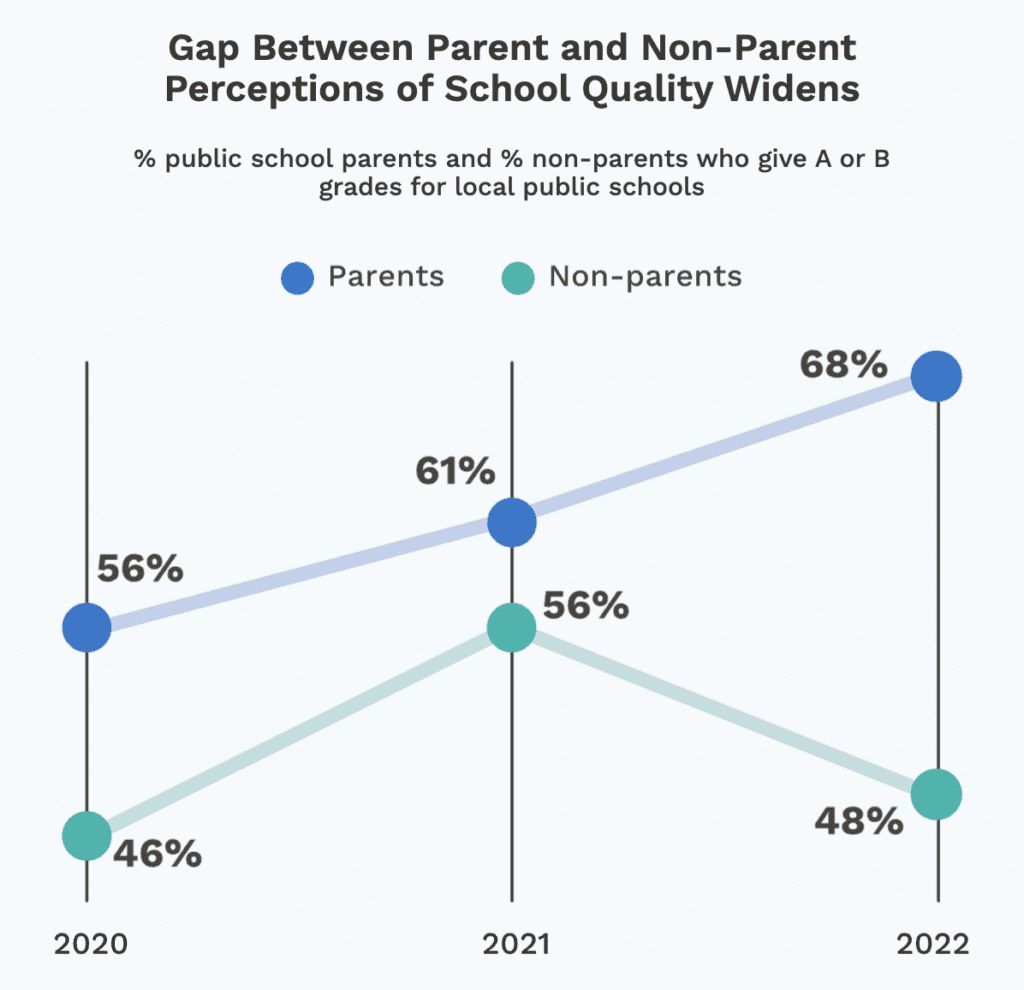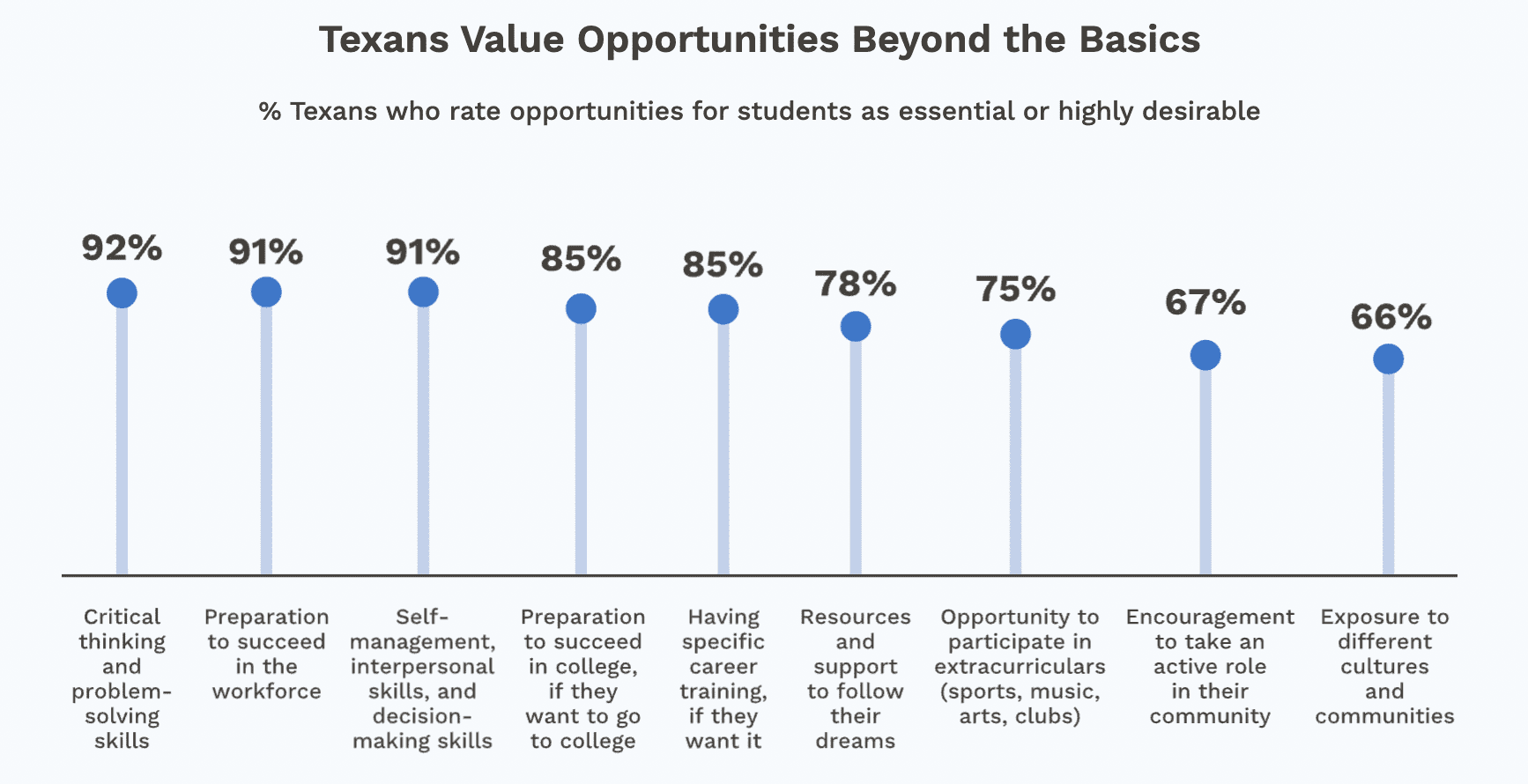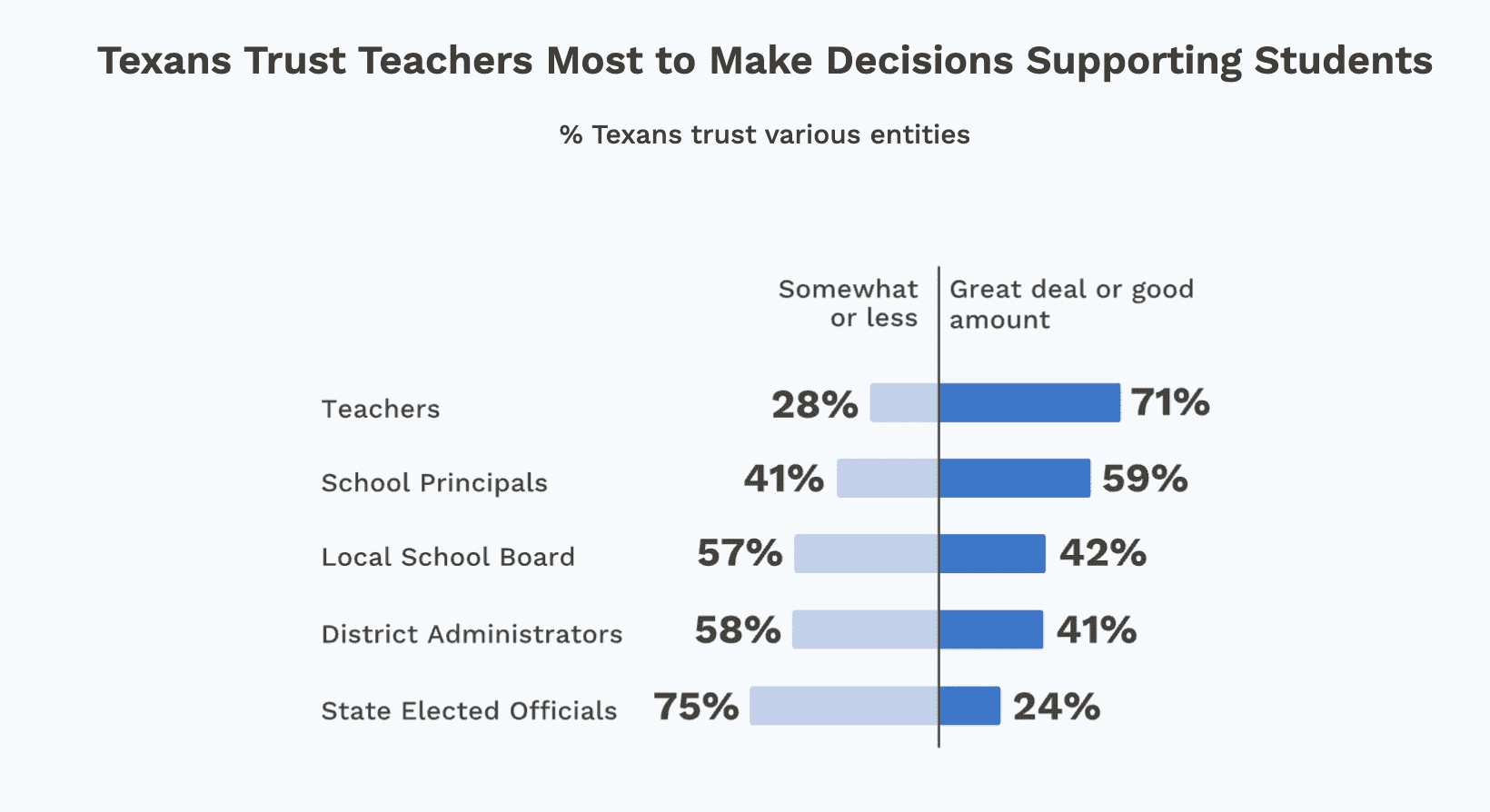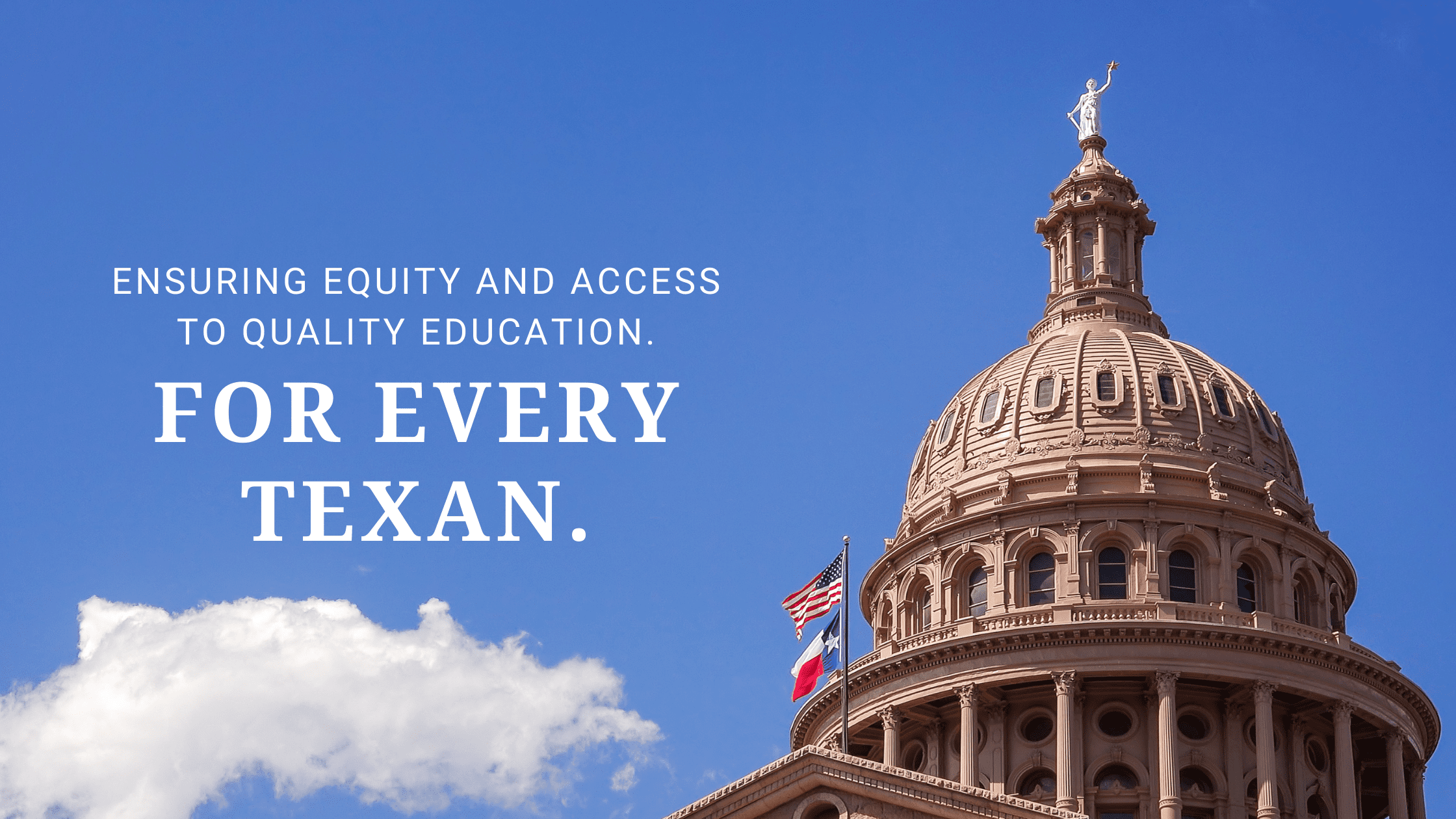The 2022 Charles Butt Foundation Poll on Texans’ attitudes toward Public Education shows, once again, that public school parents hold their schools, teachers, and system in high regard. Conducted in late September and early October 2021 by Langer Research Associates, a nationally recognized polling firm, the 2022 Butt Foundation Poll should steel the spines of public education advocates. Despite consistent attempts by anti-public education forces to weaken the connection between parents and their children’s schools, the citadel of public sentiment for public education stands strong.
Texas parents not only give their schools an “A” or “B” grade, but they also believe the best schools are those that, among other things, offer students opportunities to develop critical thinking skills, interpersonal skills, and exposure to different cultures and communities. It is notable, however, that the Texans polled who are not parents of a student in a public school were 20% less likely to give schools that same “A” or “B” grade, a near 10% drop from last year. The stark divide between parents and non-parents reveals a gap between Texans who interact with teachers, public schools, and administrators on a regular basis, and those who may get their information from other sources. The chart below, courtesy of The Butt Foundation, visualizes that divide and reversal of sentiment over the last year.

Even with lower sentiment among Texans who are not public school parents, Texans as a whole see the public education system as vital to our future. About 91% of all Texans feel it is “essential or highly desirable” for public schools to develop a well-prepared workforce, and to do so, they must offer students more than the fabled reading, writing, and arithmetic. Contrary to what you may have heard on cable news, 91% of Texans believe it is “essential or highly desirable” for public school students to learn “self-management, interpersonal skills, and decision-making skills,” otherwise known as social-emotional learning. Similarly, 66% of Texans believe that it is essential or highly desirable for schools to expose students to different cultures and communities, which is often falsely categorized as critical race theory.

The 2022 Butt Foundation Poll is a welcome reassurance that Texans who know schools the best are confident in their support for public education’s wide-reaching place in our lives. The policy implications of the Poll’s findings are important to note as well. State elected officials are the least trusted decision-makers among public school parents (at only 24%), while teachers and principals, 71% and 59%, respectively, are the most trusted. Despite consistent efforts by state leadership to sully their reputations, Texans continue to trust the teachers, principals, and schools that make up our public education system.

It is not surprising that Texans trust teachers more than state elected leadership, and it’s also not surprising that, again, there is a divide regarding what teachers are trusted to do. Still, Texans trust teachers to assess student academic progress, develop and choose curriculum, and support personal growth. The majority of Texans even trust teachers to discuss current events and create classrooms respectful of diverse identities. The fault line is, once again, between Texans who are parents of public school students and those who are not parents. But there are also significant gaps associated with the racial identity of the respondents. Texans of color, for example, are 10 to 17 percentage points more likely than white Texans to trust teachers are doing the things that make schools so valuable to the community at large.
Schools, despite their lack of funding, are vital sources of community cohesion through the social, emotional, and academic growth of their students. The vast majority of those polled rely on schools, and specifically teachers, to be the bridge for Texas children to a prosperous and healthy adulthood. As we head into a long, hot summer of political hyperbole, let us not forget that Texans have the backs of their schools, teachers, and administrators. Policymakers should follow that lead and double down on supporting public education in the face of continued efforts to tear it down.
